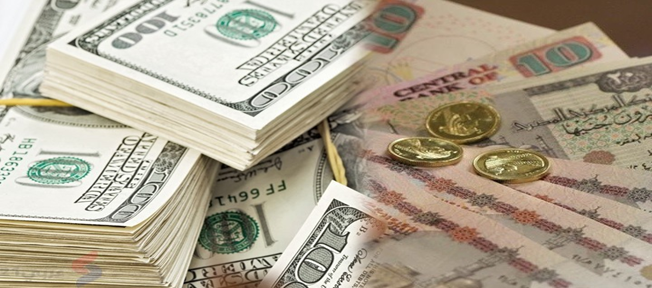
The Egyptian pound tumbled last Wednesday in its largest single-day slide since the cash-strapped government agreed to a $3 billion International Monetary Fund deal in mid-December, reported Associated Press, citing authorities.
The Egyptian pound fell from around 24.7 for $1 to just over 26.3 (and later even surpassed 27) against the dollar, some three weeks after Egypt and the IMF formally ratified the support package, approved in exchange for a number of economic reforms implemented by the country’s Central Bank, including a shift to a flexible exchange rate.
The IMF package allows for a further $14 billion in possible financing for Egypt.
The Egyptian economy has been hit hard by years of government austerity, the coronavirus pandemic, and the fallout from the war in Ukraine. Egypt is the world’s largest wheat importer, with most of its imports having traditionally come from eastern Europe.
Since the start of 2022, the Egyptian pound has lost more than 40% of its value against the dollar, with the country currently facing a foreign currency shortage.
In recent months, Egypt has also been beset by rising inflation, with the annual rate reaching above 18% in November. The Central Bank has sought to curb the rise by raising interest rates.
The National Bank of Egypt and Banque Misr — two of Egypt’s state-run banks — announced they were offering yield saving certificates with 25% interest rates, a move experts believe is another attempt to rein in inflation.
Most Egyptians rely on the government subsidies to afford basic goods such as bread, policies that have been in place for decades. Almost a third of Egypt’s 104 million people live in poverty, according to government figures.
A combination of macroeconomic and geopolitical factors is hurting several currencies in the Middle East, which have inevitably had ill effects on their countries’ economies.
Currencies in the region, like those across emerging markets, have come under pressure, reflecting concerns about their respective countries’ external vulnerabilities, weak economic outlook and the political and financial capacity of governments to manage crises.
Pressures on external finances include lower export earnings for commodity producers, plummeting non-oil goods exports earnings and services earnings from tourism, deep remittance losses due to stalled economic activity, massive portfolio outflows and reduced potential for foreign direct investment inflows.
Vulnerable economies have already seen their foreign reserves come under considerable pressure. Governments, however, are introducing measures to stem the trend, yet there are still many questions about if and when these currencies will be able to recover.
We take a look at some of these currencies, how they got into this situation and their outlooks.
EGP further devaluated
The Egyptian pound has continued its slide against the US dollar, with analysts predicting further devaluation, as Cairo seeks to meet a key International Monetary Fund requirement for a flexible foreign exchange mechanism as part of an agreement for a $3 billion loan.
The pound, on January 4, suffered its biggest one-day slide against the US dollar, depreciating by 8 per cent to 26.50 to the US dollar, which was also accompanied by a sharp increase in the interest rates on the one-year savings certificates to 25 per cent issued by the two large nationalised banks.
Cairo-based Naeem Brokerage expects the pound to weaken further by another 5 per cent, to about 28 pounds to the US dollar, it said in a research note on January 5.
“In principle, we view the latest developments as a positive move and the right direction for the economy, as well as for the EGX [including from the perspective of a foreign portfolio investor],” it said.
“Our view is that the ongoing EGP depreciation is also indicative of the country already having secured some external support as a prelude to the move and, with one of the priorities being to clear the outstanding backlog of goods [of about $7 billion] stuck at the Egyptian ports.”
Measures such as the currency devaluation are also likely to unlock $10 billion in direct foreign inflows over the coming months from the IMF and other sources, such as direct investments from the GCC, the firm said.
“Forex inflows would be crucial in securing exchange rate stability and would almost completely eliminate the forex liquidity risk overhang that is currently keeping foreign investors away from investing into new businesses, the local stock market and Egyptian debt [T-bills and T-bonds],” it said.
Assuming the pound will be freely floated, or market-determined through the interbank system from now on, this would set the stage for substantial foreign portfolio inflows of more than $15 billion into both equity and debt by end of the year, it said.



